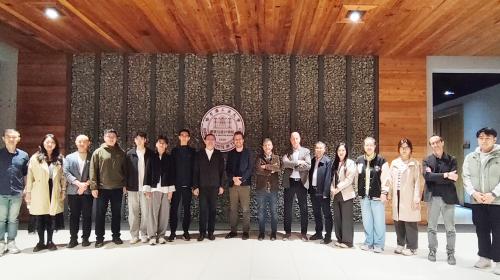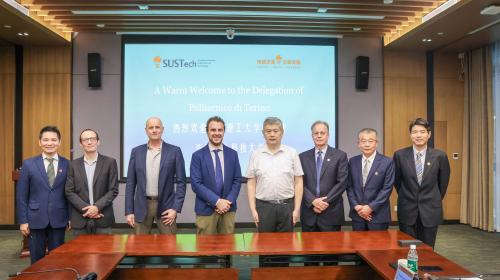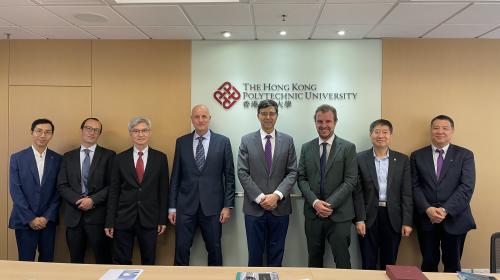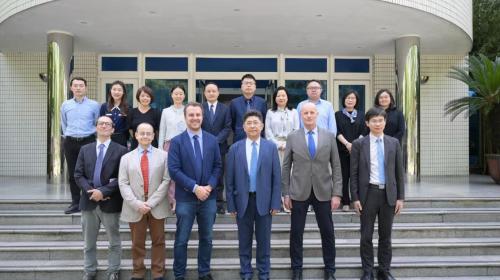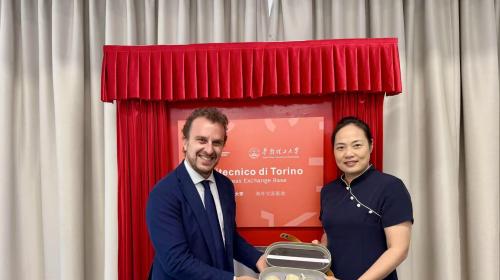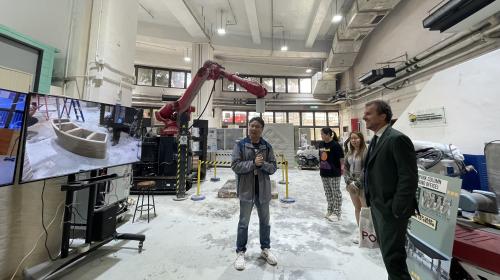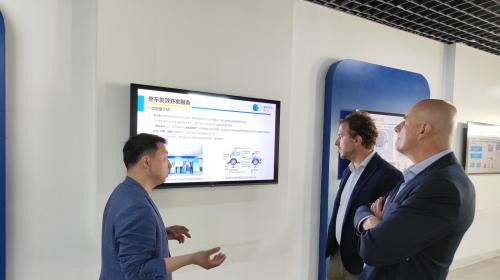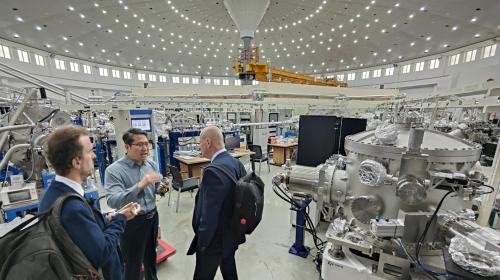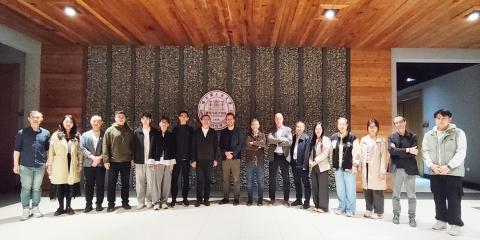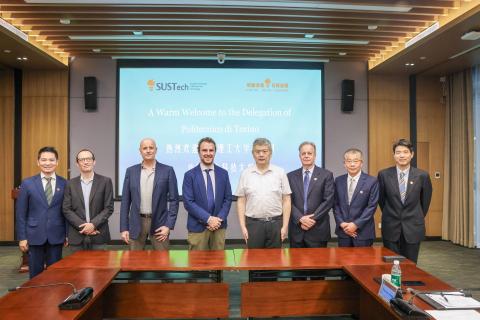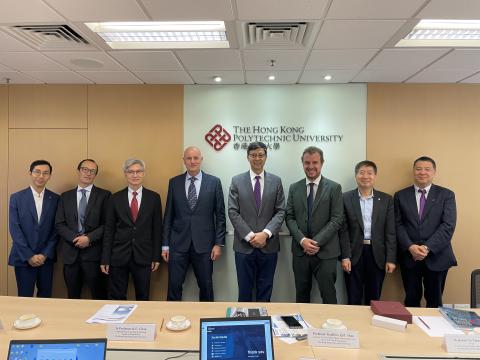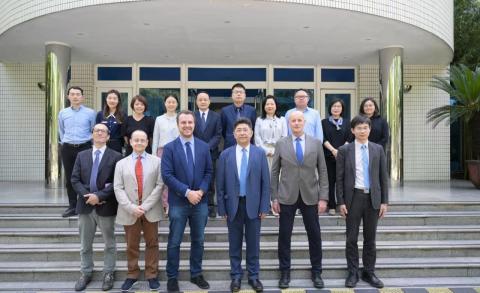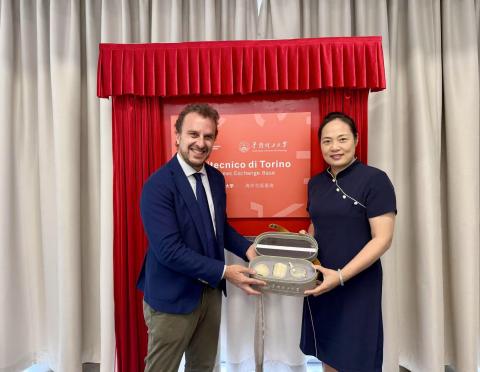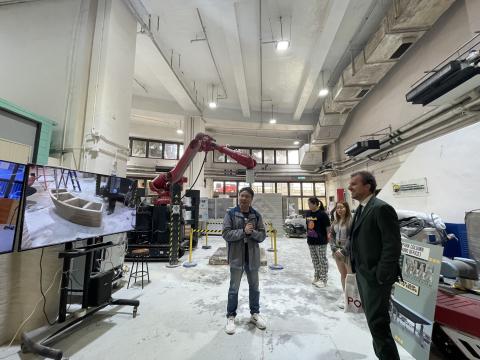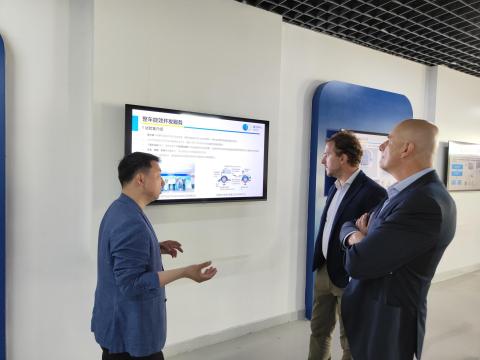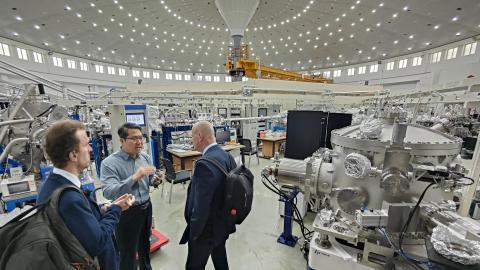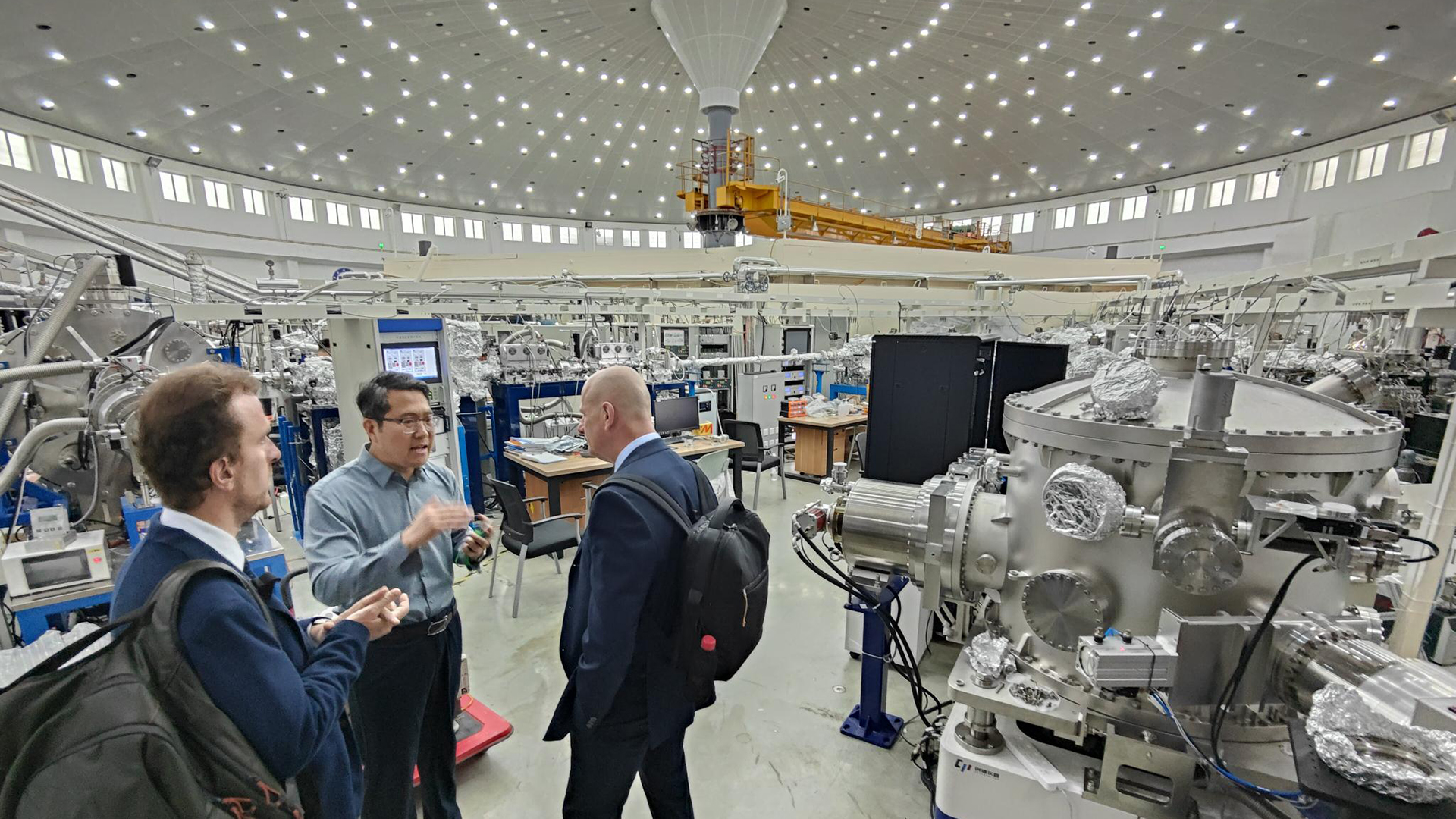
PoliTO strengthens academic cooperation in China: new prospects for education and research
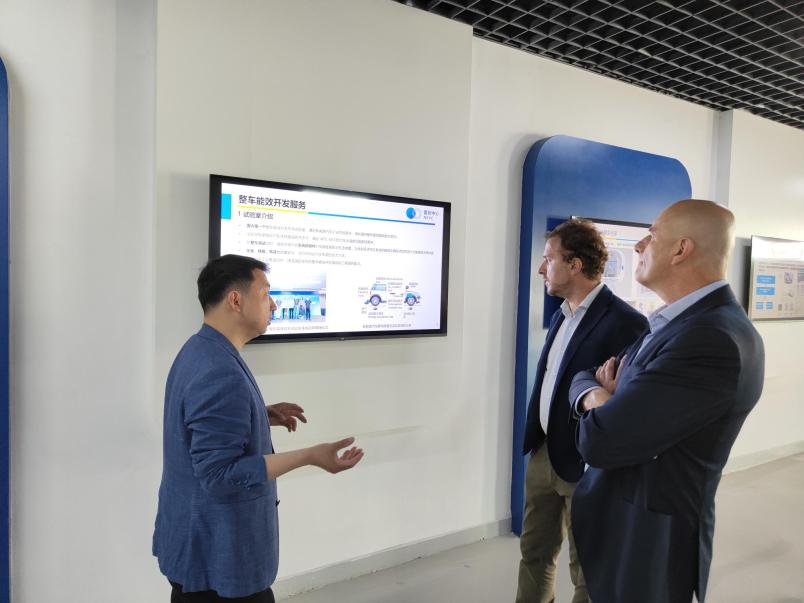
In May 2025, a delegation from Politecnico di Torino carried out an institutional mission to China, visiting some of the country’s leading universities and research centers. The delegation included Alberto Sapora, Vice Rector for International Affairs, Alessandro Vigliani, Co-Director of the China Center for the Engineering area, Francesco Novelli, Co-Director of the China Center for the Architecture and Design area, and Marco Begani, China Affairs Specialist of Internationalization, Cooperation, Alliances, and Mobility Area.
During the mission, the delegation visited several of the most prestigious academic institutions in mainland China and the Hong Kong Special Administrative Region. These included Tongji University in Shanghai, the University of Science and Technology of China (USTC), Harbin Institute of Technology (HIT) in Harbin, Beijing Institute of Technology (BIT) and Beihang University in Beijing, South China University of Technology (SCUT) in Guangzhou, Southern University of Science and Technology (SUSTech) in Shenzhen, Hong Kong Polytechnic University (HKPolyU), Chinese University of Hong Kong (CUHK), and City University of Hong Kong (HKCityU), as well as the New Energy Vehicle Innovation Center (NEVC) research institute in Beijing.
The mission aimed to consolidate existing collaboration lines (such as the joint training programs with SCUT, HIT, and Tongji – the latter recently approved by the Ministry of Education) and to explore new proposals within the context of EU–China academic relations. Representatives from PoliTO and Chinese institutions had the opportunity to discuss new initiatives in research and researcher mobility (particularly PhD students), expressing a mutual commitment to supporting and fostering dialogue among academic representatives of various institutions in the most innovative areas of engineering, architecture, and design, seen as essential grounds for sharing ideas and expertise.
The development of new student exchange models also emerged as a key topic during discussions: in this regard, education is increasingly seen as crucial not only for the development of technical skills, but also for fostering intercultural dialogue — an added value that, along with interdisciplinary approaches, enhances vertical expertise, a strength shared at high levels by Politecnico and its Chinese partners. In this relationship, the quality and balance of partnerships are fundamental elements of the university’s strategy in China, which, by reinforcing dialogue with its partners, helps promote academic and scientific cooperation between the two countries, and contributes to building an international community of students, researchers, and faculty increasingly capable of developing innovative ideas and solutions for society.
“China is a key strategic partner for Politecnico di Torino, not only for its growing influence in the fields of engineering, architecture, and design, but also for the central role Chinese universities play in global innovation and research. Collaboration with these institutions is essential to promote cultural, scientific, and technological exchanges, and to prepare our students and researchers for an increasingly interconnected future. I would, of course, like to thank the China Center, which serves as an inclusive driving force behind all activities to and from China” commented the Vice Rector for the International Affairs Alberto Sapora.
